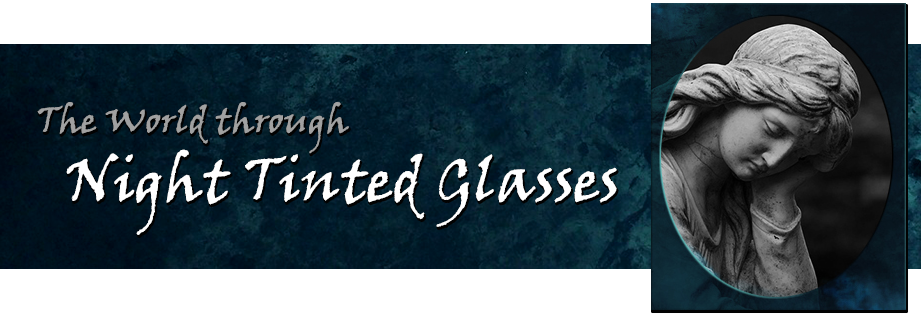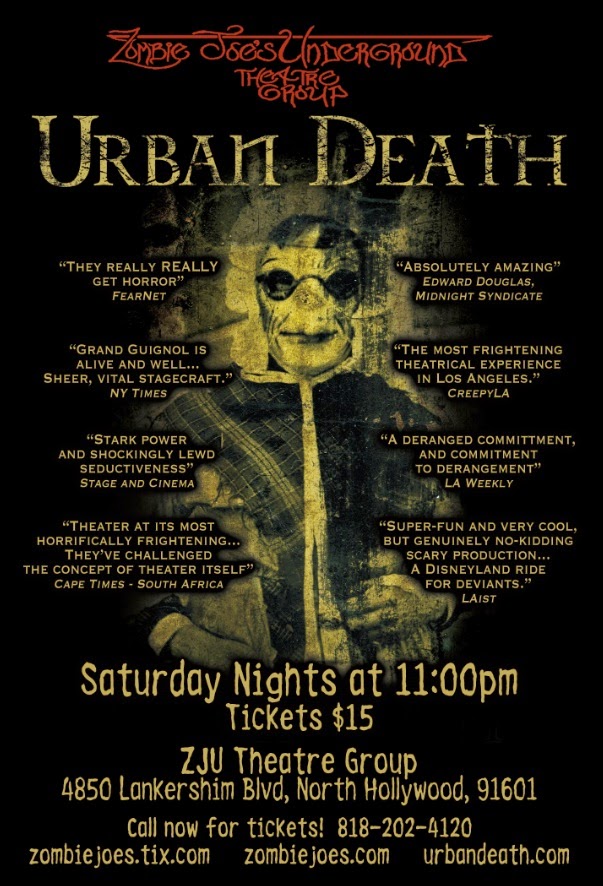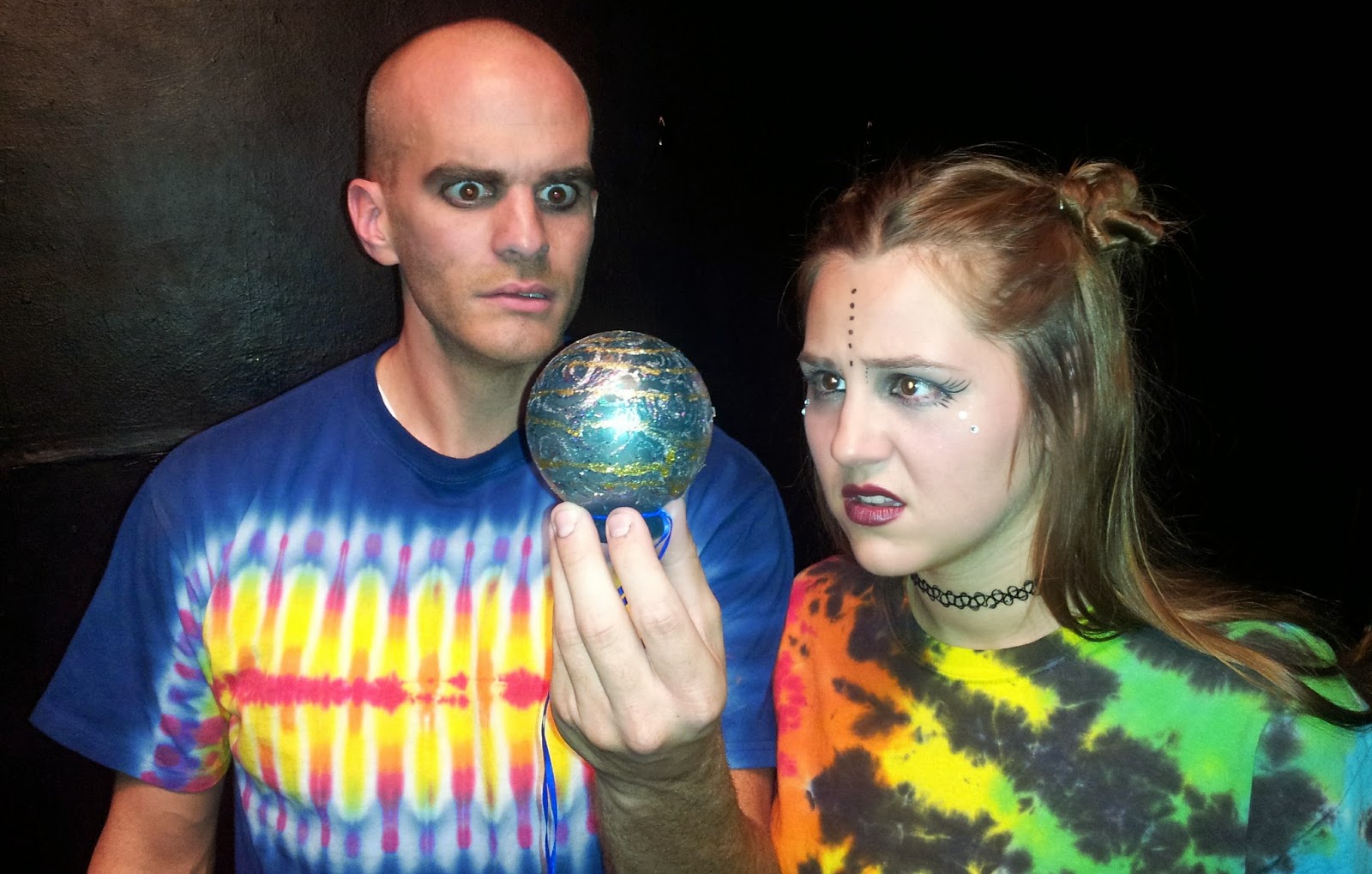I recently did a general review of the 1975 play
Carmilla by
David Campton for vampires.com magazine. You can
read it here. However, I have myself written my own adaptation of precisely the same novella which you can read about
right here.
Okay, no big surprise. I liked mine more. But given how many versions of J.Sheridan LeFanu's work I"ve seen--many with great praise--that does not explain my reaction. As a writer, a playwright, a theater critic and as a great fan of this novella herein is my reaction.
Yeah, spoilers if you haven't read or seen any of this.
Essentially
Carmilla is a very atmospheric gothic tale of what seems to be a love story between two young women, one of whom turns out to have been a vampire. So far so good.
Apart from anything else, here are my complaints about this play adaptation:
Writing-By-The-Numbers. Honestly, it really does feel as if the writer were phoning the whole thing in, maybe trusting to some really skilled actor to weave silk out of a sow's not-very-well-groomed ear. Consider for example the exposition--all the many ways we writers have to make exposition interesting. And Crampton decided on one character
repeating something to someone else something they both already know.
But more tellingly, the characters aren't real. They become tokens the writer moves around for purposes of plot. Instead of individuals, they are mere "types.' Nor are they even interesting types! A vaguely sinister servant of dark powers named Ivan (who really might as well have been named Igor). The fussy Englishman who used to be in the army and has to be nagged into stepping outside his comfort zone. The ingenue who likes dancing and gossip and other than that just does what she's told. And so on. As an archetype from which to build, any of these might be fine. None show any building however.
Stephen R. Donaldson--an author I greatly respect--wrote once in an essay about the difference between drama and melodrama, an idea that sank deep roots into my imagination. He noted the classic story of all melodrama involves three roles--the oppressor, the victim and the rescuer. The evil landlord ties the schoolmarm to the railroad tracks unless the Mounty can reach her in time. The wolf will devour this little girl in a red cloak, but the woodsman interrupts his villainy. And so on. Drama uses the same three roles, but has characters switch roles. Victim becomes oppressor. Rescuer becomes victim. Oppressor becomes rescuer. Often the best stories involve multiple characters who each play all three roles sooner or later, with and for each other.
The play never wavers from melodrama, however. Which brings us to second issue.
Disrespecting the Source. As it happens I am extremely familiar with
Carmilla by Joseph Sheridan LeFanu, having written not only a play adaptation but
The Annotated Carmilla full of over 400 footnotes. I well realize that literary (i.e. written to be read) and dramatic (i.e. written to be performed) media require changes when moving stories back and forth. Not any change, however. Not change for the sake of change. Certainly not change away from the heart of the story!
Carmilla can well survive all kinds of changes in terms of detail. As written it takes place in summer, but might well be told during winter. Set in Austria, yet two of my favorite adaptations change the locale to Hungary and to the United States--also shifting it in time to the 1980s or the present day.
However, this is what I mean by the heart of the story--in a deft emotional slight of hand, LeFanu wrote a tale that remains a drama. Carmilla herself is both victim and rescuer to Carmilla for example, each from their deep loneliness and each to the terrible undead hunger of a vampire. Laura's father is to some sense an oppressor who keeps his child isolated from the world and under his thumb, a rescuer and victim of Carmilla, then in turn becomes Carmilla's oppressor in his helping to destroy her. Add to all this the fact Laura herself is an unreliable narrator, that she contradicts herself and sometimes misdirects--in some sense the reader is her victim, but in doing so rescues them from truths too disturbing for comfort.
Likewise Carmilla isn't truly a pure monster. LeFanu did not villainize his vampire, rather making her someone as isolated and sad as Laura herself. She tries to resist feeding upon this girl, for example. More, the point is made explicitly that upon her destruction she will go to somewhere horrible, somewhere worse than the grave. Laura can never quite stop thinking of Carmilla as her friend. Neither, therefore, can we.
All this vanishes in Campton's play. Instead, the formulaic handsome young hero fights to save the ingenue from a selfish undead evil. Period. That character, not surprisingly, does not exist in the original. Not at all. In fact Captain Field's presence in the play leads to my third major problem.
Misogyny. Honestly this one stands out like a pillar of flame! The novella's central character without question remains Laura. She is narrator and protagonist, her emotional life forming the backbone of the entire story. In this play she becomes a completely passive, even secondary character. She exists to be a target, nothing more. All agency and decisions fall away from her, to be given to Captain Field.
Nor is this the only example. The Ivan character mentioned before explicitly takes the place of the Countess, a charming stranger who calls herself Carmilla's mother. But even the secondary villain must be given male genetalia. The one other female character surviving from the original text (which contains five, reduced to three) becomes likewise useless. In the original at least Madame Perradon helped set the stage for the strange wonders to come. But Campton's play takes even that individuality from her, turning her into nothing but a victim who overhears what she must not.
See the pattern? Women as victims, or if evil, oppressors. Men as rescuers. Not only melodrama, but wedded to sexism as well. Meanwhile, as the few female characters are cut out or weakened, a new male character takes center stage and an extremely minor character (the Doctor) is elevated to supporting--for no good reason I could figure out. Frankly, I"m still puzzled as to why he's in the script!
Along the same lines (and this may be a minor point) in the original we meet a fairly wide range of society's levels--military, servants, nobility, peasants, etc. This play levels all that and every single character seems firmly in the middle class, save for the villain. Even the Peddler turns out to be Captain Field in disguise! Okay, that is subtle but it marks another shred of quality stripped away for no good reason I can see.
The combination of all three added up to huge disappointment. It really does count in my mind as a textbook case of how not to adapt a story (along with the first
Moby Dick movie with John Barrymore--in which
Ahab gets the girl!)
 ere's one scene that gives some idea of the power of such a seemingly simple idea. We watch on screen gigantic hands place one tiny soldier after another, face down, on an expanse of wet soil. At last, hardly any soil remains to be seen. Then hands pour some pale green gelatin over all this, then they scoop in to blend it all together into a mush. A sky in the background shows sunset. Soon, lights fade on the tiny landscape, which via the camera and screen certainly look life-size. A pair of filthy legs, wearing (tiny) military style boots and army fatigues, walk one wear step at a time through that mud. Moonlight allows us to see it. And the soldier's voice, whispering in freezing terror, recounts what happened. He got lost. At sunset. In no man's land, between the trenches of men armed to the teeth with machine guns. Wandering in the freezing cold hour after hour, not daring to make a sound. He describes most of all realizing he is walking upon the remains of countless dead, in total darkness, and how he can identify each body part as he walks. Arm. Chest. Head. What can he do but try and not think about it?
ere's one scene that gives some idea of the power of such a seemingly simple idea. We watch on screen gigantic hands place one tiny soldier after another, face down, on an expanse of wet soil. At last, hardly any soil remains to be seen. Then hands pour some pale green gelatin over all this, then they scoop in to blend it all together into a mush. A sky in the background shows sunset. Soon, lights fade on the tiny landscape, which via the camera and screen certainly look life-size. A pair of filthy legs, wearing (tiny) military style boots and army fatigues, walk one wear step at a time through that mud. Moonlight allows us to see it. And the soldier's voice, whispering in freezing terror, recounts what happened. He got lost. At sunset. In no man's land, between the trenches of men armed to the teeth with machine guns. Wandering in the freezing cold hour after hour, not daring to make a sound. He describes most of all realizing he is walking upon the remains of countless dead, in total darkness, and how he can identify each body part as he walks. Arm. Chest. Head. What can he do but try and not think about it?
































